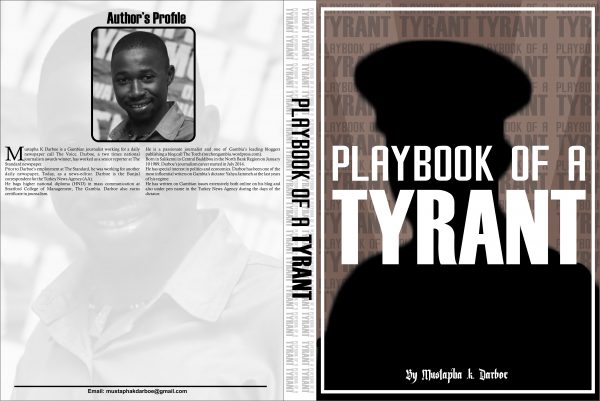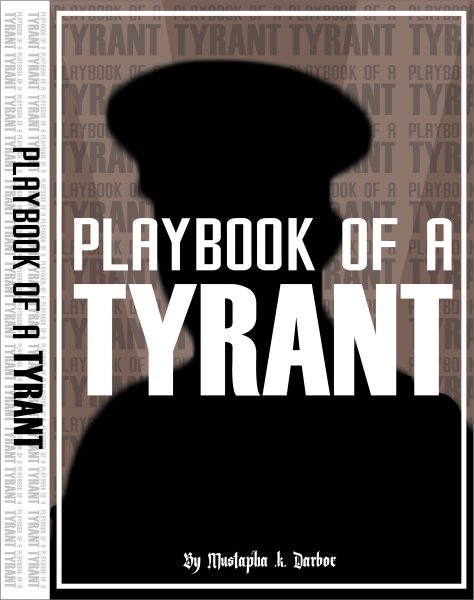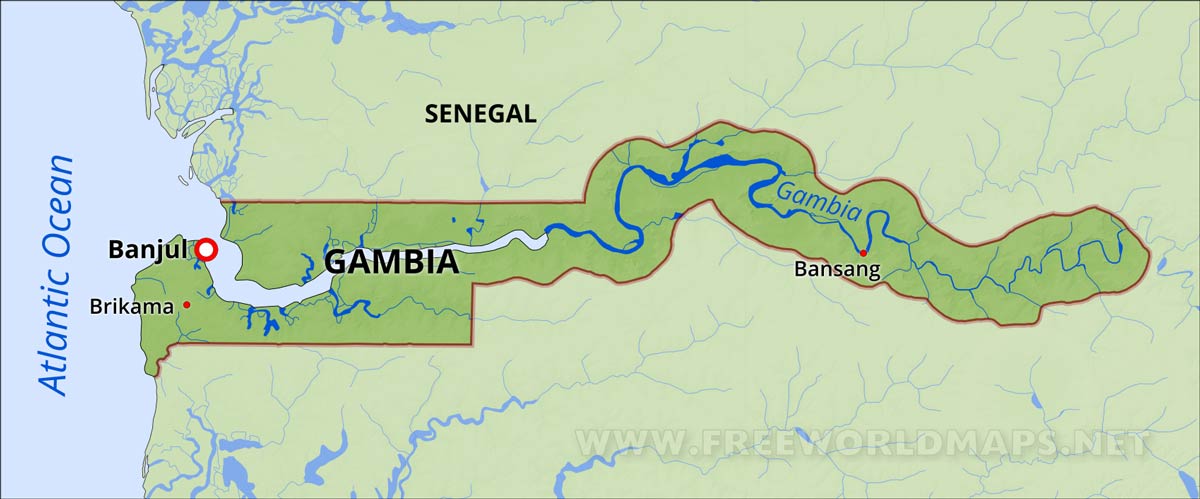 On July 20, disgruntled soldiers who were protesting against the government led by a young man later to be known as Saikou Manneh were disarmed, detained and set free. The country’s president Jakali Sanneh was away.
On July 20, disgruntled soldiers who were protesting against the government led by a young man later to be known as Saikou Manneh were disarmed, detained and set free. The country’s president Jakali Sanneh was away.
Behind state house docked a military ship by Uncle Sam. Their mission was a joint military exercise with soldiers of Kanan, so they claimed. Except that the commander in chief of the arm force, Sanneh, was not aware of this exercise.
Yet country’s security men downplayed the significance of the events. Upon Sanneh’s arrival in the country from Britania, the tense atmosphere at the airport was apparent.
The guard of honour was a mess and Sanneh was taken out of the airport through the back gate. His ministers were absent, even that of interior and defense at such a crucial time.
The writings became apparent. The journey of how one of post-independent Africa’s earliest multi-party democracies was thrown into a dictatorship has begun. The people of the resilient country that survived even the so-call “era of generals” in Africa just watched as fear overtook their lives.
Rarely has one written a book to portray tyranny, a system established, sustained and ruined by the same fear that created it, as the Playbook of a Tyrant.
The Playbook of a Tyrant could be compared to Kairaba, the autobiography of former President Sir Dawda Kairaba Jawara in that it gives interesting, sometimes hilarious and surprising, little-known facts about the political and economic life of Kanan.
Kanan is a snake-shaped fictitious Island country that symbolises The Gambia with a history that had been adulterated to glorify dictatorship. The book offers little details with creative yet unusual terms such as dictaconomy – referring to the economic model of the dictator.
The author, Mustapha K Darboe, skilfully combines fiction and non-fiction to give a proper and factual context to the recent political events of the country. Gambia has survived one of Africa’s most brutal old-school dictatorship that cost many their lives and exiled many.
Darboe’s journalistic acumen made it possible to detach himself from the scenes and painted them as seen, except that he uses his literary prowess to give the book that unique interesting touch. Mustapha has keen interest in local and global politics and had extensively covered and researched politics in The Gambia.
The lead character in the book, Khalid, is a revolutionary soldier, lawyer and a journalist who has come to embody the struggle against tyranny in the small nation. The fight against tyranny was tough and costly for many, a struggle that finds an expression in the words and actions of Khalid.
The Playbook is a 170-page book divided into 38 chapters. It is interspersed with symbolic poems for ease reading. The book began with the suspicious nature of the coup that brought soldiers to power and how, circumstantially, powers such as the CIA, Libya and Nigeria’s Abacha could not have been absolved from the whole act.
It also tells the not so good relations between Gambia and Senegal as at the time of the coup and how that influenced their neutrality despite their fact that the soldiers anticipated their reactions and prepared for it.
The book dealt with almost every aspect necessary to have a full grasp of how the machinery of dictatorship works. It explains how a coup initially backed by two Western powers had gone out of bound and out of hand.
The Playbook is all the more effective in conveying the outlandishness and outrageous political and economic history of Kanan because many of the events and characters are easily recognisable in The Gambia.
The soldiers came with good intentions, claiming a smooth transition to democracy. But even within the young soldiers, Manneh’s intentions were not known. He has always been told by black magicians that he would be president and he was prepared for it.
While his colleague soldiers were with the initial plans of a transition, Manneh has laid down his plans of how to betray the agenda of the coup and rule the country. Unknown to almost everyone in Kanan what his intentions are, Khalid knew.
Lavish lifestyle
Years into Manneh’s rule, the fears of Khalid became apparent. The economy stagnated and influence and money of the state centralised at the State House. The man became the government and the state. To sustain his luxurious life style, President Manneh embarks on ruthless exploitation and looting.
“Every penny that came into the country leaked into the President’s pocket,” the author writes. “The funds were used for his flamboyant projects and frequent parties at the luxurious presidential resort he has built.”
This brings to mind the book of Ahmadou Kouroumah, Waiting for the Wild Beast to Vote, where he said “a true African chieftain must be the wealthiest man of his country, and to achieve that he must not make any distinction between his property and the treasury of the state”.
The most precious thing to President Manneh was not the economy of the state, security of the people, infrastructural development but the security of his throne.
And for more than 20 solid years, he successfully secured this by suppressing and oppressing any and every form of dissent and successfully instilled perpetual fear in the minds of people.
The book eloquently narrated how sustaining the coup that was relatively peaceful would later turn bloody. Four months after the ‘revolution’, the writer explains how soldiers who were considered counter-revolutionaries were randomly shot in an execution style.
The writer explains how the tyrant became obsessed with self-glorification, often explaining how he got his mandate from God. As a result, he embarked on a process of re-writing the history of the country.
At his peak, the political theory that the state is divided into three arms was just a facade, a fallacy. Manneh as an individual was not just a branch but the sole stem of the government.
But as the 2016 election approaches, the agitation and dissatisfaction in the country and in diaspora was phenomenal.
Despite the fact that entire country, for once, was speaking with one voice, there was little hope that Manneh would not win the election knowing how he had total control of every aspect of the government.
But Manneh abruptly left Kanan after losing the election thanks to the threat of a gun. The offers insight as to how the autocratic ruler attempted to overturned the results of the election.
A government led by a little known figure replaced him. The people looked into the future with a mixture of hope and anxiety.
The Playbook of a Tyrant is anything there is to know about one of West Africa’s ruthless dictatorships. The story perfectly recreated the story of the fear that ruled the small nation for over two decades. The endless torture, disappearances, secret detention centres, sacrifices and intimidation and killing of political opponents and journalists.
To understand Gambia’s ‘revolution’ that never was, this is a must read.
As his first book, it must be said that Mustapha has succeeded in giving a proper but factual context to the recent political events of The Gambia.
The book was reviewed by Lamin Jahateh, one of Gambia’s finest journalists, who has worked under the repressive ruler Yahya Jammeh for close to a decade. Jahateh is a freelance reporter for Reuters news agency and former editor of The Point newspaper. Jahateh is also a press freedom advocate working for Gambia Press Union.
If you are interested, you could purchase the e-book on Lulu online retail site for $10. Just search Playbook of a Tyrant.






A PLAYBOOK written by a PLAYBOY will undoubted fall into PLAYHANDS.